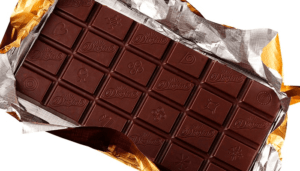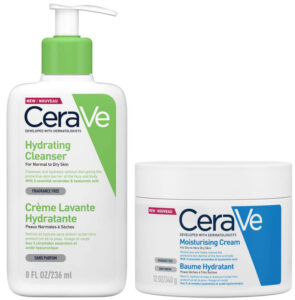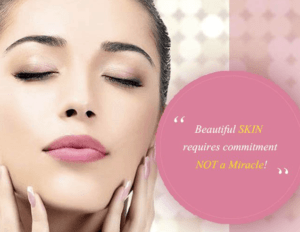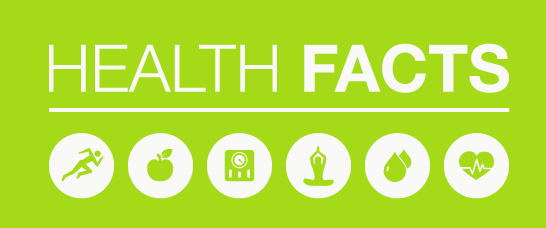Skin is our largest organ, and when it’s healthy, it’s something we may take for granted. We are frequently seeing misleading ‘facts and myths’ about our skin, and what is good and bad for it appearing in gossip columns all too regularly. Here we look at stories we see time and again that can be cleared up immediately and supply some facts you can rely on as we try to put some clarity to ‘Facts And Myths About Healthy Skin.’
Skin Continually Renews Itself:
This Is True. The skin provides an effective barrier between your body’s inner environment and the outside world. The epidermis (the outer layer of skin) has cells called keratinocytes that are constantly dividing to be replaced by new cells that move up through the dermis. This process of renewal is basically exfoliation (shedding) of the epidermis. Skin is a fertile source of stem cells with the capability to divide and renew themselves.
Drink 2L Of Water A Day For Healthy Skin:
This Is Not True. The volume of water you drink does not directly influence the skin. Water arrives at the skin by blood flowing through the dermis, the inner layer of skin; water is lost from the epidermis, as you sweat and especially in a hot, dry climate.

Water is needed to sustain skin hydration and when you become severely dehydrated your skin will look dull and has less elasticity. For a person who is healthy the internal organs – heart, kidneys, and blood vessels – control the amount of water that reaches the skin. So, in fact, there is no fixed volume of water that you need to drink, it merely depends on the amount of water that you are using and subsequently losing.
Read – Benefits Of Drinking Water For Your Skin
Stress Can Make Skin Unhealthy:
This Is True. People suffer from many health issues in today’s hectic lifestyle that we blame on stress, various skin conditions have been determined in scientific studies that are affected by life events, likely by stress hormones including cortisol – this is a steroid hormone made in the adrenal glands.

Most notable are alopecia areata, this is an auto-immune condition where the body’s immunity starts to attack the hair follicles which eventually leads to hair falling out; Psoriasis is another auto-immune disease that causes skin thickening, inflammation, and scaling; and eczema, itchy red skin inflammation often occurring alongside asthma, hay fever, and other allergies. Regrettably, a flare-up of these skin conditions is precisely what you don’t need when you are feeling stressed or under pressure.
Eating Chocolate Causes Acne:
This Is Not True. Acne vulgaris is the typical ‘teenage’ acne which can actually persist into your 30’s and 40’s, this occurs as a result of the interaction between hormonal influences on grease glands in the skin, plus the skin’s immune retort to blocked pores and microbes living on the surface of the skin.

Eating a high-fat diet is unhealthy for numerous reasons, but it is not the cause of acne. In fact, you will find that some medication prescribed for severe acne such as oral Isotretinoin Capsules, that are for teenagers and adults, are better absorbed when the pills are swallowed with a fatty meal – it’s best to take them straight after a meal or snack to make sure they work correctly, and that could include chocolate.
Obviously, overdoing the pizza and chocolate bars isn’t good for your health or your waistline, so do try to follow a healthy diet.
Washing Powder Causes Eczema:
This Is Not True. Firstly, Eczema is a condition where the skin becomes dry, itchy, red and can be extremely painful. The cause of it is a combination of genetic factors (how your skin is made) and environmental influences, leading to the inflammation.
There is no doubt that soap, detergents and washing powders can irritate the skin and contribute to dryness because they are made to remove oil and grease (just as washing-up liquid removes grease from dishes) so consequently when they come into contact with the skin they will remove some of the natural oil from it.
Biological washing powders are made with enzymes so that these proteins break down fats and proteins to remove stains, so if you do suffer from sensitive skin or eczema, this may well react if it comes into contact with them, but they are not the cause of Eczema. It is vital that any washing power is thoroughly rinsed out of clothing before it is worn, to avoid skin irritation.
 CeraVe Face and Body Cream – lookfantastic.com
CeraVe Face and Body Cream – lookfantastic.com
Read – The Effect Chemicals Can Have On The Skin
White Marks On Nails Indicates Calcium Deficiency:
This Is Not True. Nails are formed in the nail matrix, an area under the skin at the top edge of your nail. If the matrix is traumatized, bumped or damaged in any way, an abnormality in the developing nail occurs, and ‘air-pocket’ can become trapped. This ‘air-pocket’ then appears as a white mark as the nail grows out. Calcium is vital for healthy nails (as well as bones and teeth), but these white marks are not a sign of Calcium deficiency.
Sunshine Is Good For You:
This Is Both True & False. Many people have experienced the feel-good factor that comes with a bright, sunny day, but, as many of us are aware, there are good and bad effects from the sunlight. Light from the sun includes a mix of different wavelengths of light: some can be seen by the human eye, some are shorter than the colors we can see, these are called ultraviolet (UV) and some are longer, the infrared. These different wavelengths have different effects on the skin.

UVB is used by skin to produce vitamin D, which is essential for bone health. But, if we don’t get enough sun exposure, this vitamin must be obtained from our diet.
The problem occurs when the skin is exposed to too much UV, it can damage the skin cells’ DNA, leading to uncontrolled growth, and the source of cancer. A simple rule to follow is, that unless you have a disease or treatment that suppresses your immune system, sunshine is beneficial for you in moderation, but always avoid getting sunburned.
Dermatologists do use specific wavelengths of UVA and UVB in carefully controlled doses to manage and reduce skin inflammation, an invaluable treatment for some skin conditions.
It’s essential to ensure that your skin is sufficiently protected whenever it is exposed to the sun, even if it is cloudy and not a particularly hot, sunny day you must apply sunscreen.
When purchasing a sunscreen, you have to look for the SPF ‘Sun Protection Factor’ The higher the number of SPF, the greater your skin will be protected from the sun.
When you look at sunscreens, they are placed into four categories: Low Sun Protection (SPF 6 to 14) Medium Sun Protection (SPF 15 to 29) High Sun Protection (SPF 30 to 50) and Very High Sun Protection (SPF 50 +). It is recommended that you opt for a sunscreen with an SPF of 30 or higher.

In addition to SPF, it’s imperative that you take note of the UVA Star* rating of the sunscreen that you purchase. You should always buy a sunscreen that displays a UVA Star* rating of at least four stars out of a possible five.
Sunscreens with a high SPF protects against dangerous UVB (ultraviolet B rays), while the UVA Star* rating indicates to what extent the sun’s ultraviolet A rays are absorbed by the sunscreen and not into the skin.
It’s the penetration of UVA rays into the skin can that leads to the appearance of premature aging, while on the other hand, exposure to UVB rays is associated with the risk of developing skin cancer.
Even if you’re skin is not prone to getting sunburn, it’s still worth investing in a sunscreen with an SPF of 30 or 50 so that you can relax a little easier knowing that you’ve taken steps to protect your skin.
The other important factor apart from the SPF and UVA star rating that it is vital to reapply your sunscreen every 2 hours throughout the day, especially if you’ve been in water or played sports and sweated a lot, and rubbed the sunscreen off.
Keep It Simple – But Effective:

The basic principles to keeping your skin healthy are to apply a lot of common sense. You need to wash your skin regularly to remove dirt, but not so much that you remove the essential oils and moisture and water-proofing substances. Use a good moisturizer to prevent your skin from getting dry and feeling tight. Do your best to avoid stressful situations if at all possible. Eat a healthy diet and drink water, you will know you have not had enough water to drink if you begin to feel thirsty, try to prevent that from happening! And finally, protect your skin from too much sun with a hat, clothing, and sunscreen.
Have you heard about these ‘Facts and Myths’ or any others that may affect your skin? I would love to hear about them. Please leave any comments or questions below, and I will be happy to discuss them with you.
jo@yourskincarehelp.com


Hey Jo, this has been a very helpful read as I have low vitamin D and calcium. I always thought that the white marks on my nails were as a result of my low calcium, its interesting to read that it is due to damage and resulting air pockets. Plus, informing us about the importance of drinking enough water, and how having a healthy body will result in a good healthy appearance 🙂 Also, how important the sun is to us, but in the right amount and using sunscreen for protecting the skin. All very sound advice 🙂
This is very interesting post, never realised just how much stress and lack of water can have on health! Especially in these times. I wonder just how many people are turning to sugary drinks and comfort food! A real eye opener.